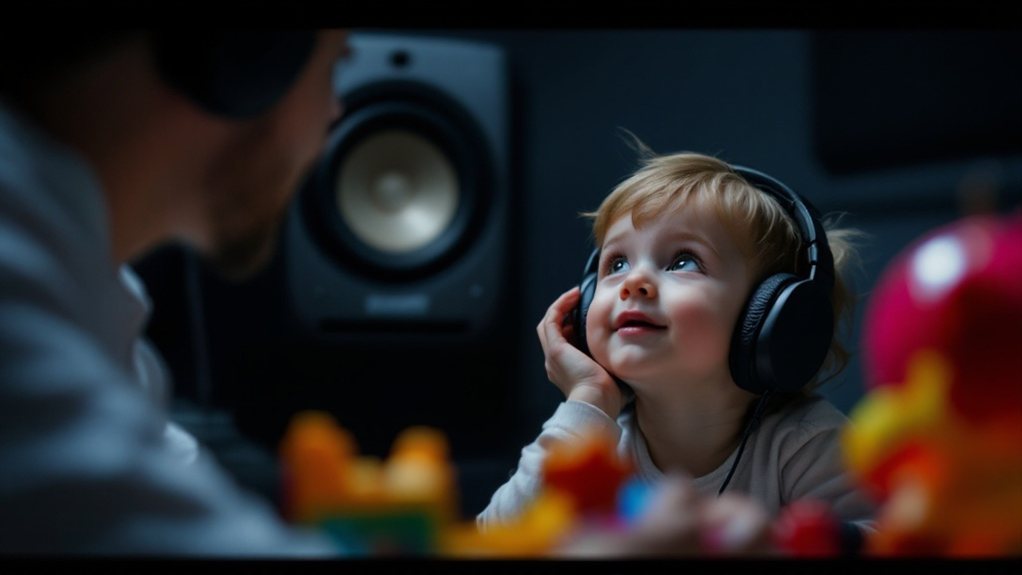Are you looking for Children Hearing Test Regents Park?
Ready to take the first step towards better hearing?
Let’s talk!
Connect with us today! Fill out the contact form below to schedule your personalised hearing consultation at All Things Hearing. Our expert team is committed to guiding you on your journey to improved hearing health. Don't wait to enhance your quality of life. Reach out now – we're here to listen and help!
Follow us:
Our main hearing clinic is located in Greenbank and our visiting sites are located in Daisy Hill, Jimboomba, Parkinson, and Wishart.
You’ll want to get your child’s hearing tested if you’ve noticed they’re not responding to sounds or having trouble understanding speech. Early identification of hearing issues is crucial for their speech and language development. You should look out for signs like lack of response to sounds or high volume settings on devices.
If you’re concerned, it’s essential to consult the specialists at All Things Hearing, who provide their hearing services in the area. They’ll use specialized equipment and approaches to assess your child’s hearing, and from there, you’ll be able to explore the next steps for their hearing health.
Why Hearing Tests Matter

As you schedule a children’s hearing test, it’s essential to understand why these tests matter. You’re taking a crucial step in ensuring your child’s hearing and communication development are on track. If you don’t identify any potential issues early on, it can lead to delays in speech and language skills. It’s not just about detecting hearing loss, but also about giving your child the best possible start in life.
You’ll want to know that hearing tests can detect a range of issues, from mild hearing loss to more serious conditions. By identifying these problems early, you can work with professionals to develop a plan to support your child’s hearing and communication development. It’s a process that requires your involvement, and being informed is key. As you prepare for the test, you should feel confident that you’re doing what’s best for your child. You’re helping them develop essential skills that’ll benefit them throughout their life.
Signs Of Hearing Loss
Your child’s hearing loss can manifest in various ways, and it’s crucial you’re able to recognize the signs. You might notice that your child isn’t responding to sounds or their name being called. They may have difficulty following instructions or understanding speech, especially in noisy environments. It’s also possible that your child will struggle to articulate words or speak clearly, and they might have trouble distinguishing between similar sounds.
You should pay attention to whether your child is turning up the TV or other devices to an unusually high volume. They might also have trouble hearing high-pitched sounds, like the sound of a bird chirping or a squeaky toy. If you’ve noticed any of these signs, it’s essential that you don’t delay in having your child’s hearing tested. You’re not expected to diagnose the issue, but you can identify potential problems and seek professional help. By doing so, you can ensure your child receives the necessary support to develop their communication skills.
Testing Young Children

Recognizing signs of hearing loss in children is key to identifying potential issues, and now you’re likely wondering what’s involved in testing their hearing. You’ll want to know that testing young children requires a thorough approach, as they can’t always communicate their symptoms. As you consider testing, you’ll need to prepare your child for the experience, which may involve playing games or watching videos to help them get used to the sounds and equipment.
You’ll need to find an audiologist or hearing specialist who has experience working with children. They’ll use specialized equipment and techniques to assess your child’s hearing. You’ll be asked to provide information about your child’s medical history and any concerns you have about their hearing. It’s essential to be honest and thorough, as this information will help the specialist tailor the testing to your child’s needs. You should also ask questions and seek a second opinion if you’re unsure about any aspect of the testing process.
Hearing Test Process
Certainty about your child’s hearing abilities is just a step away, and it begins with understanding the hearing test process. You’ll likely start by scheduling an appointment with an audiologist or a hearing specialist. They’ll ask you about your child’s medical history and any concerns you have about their hearing. During the test, you’ll be with your child in a soundproof room, and the audiologist will use various equipment to assess their hearing.
You’ll be asked to keep your child calm and quiet during the test, as this is crucial for getting accurate results. The audiologist will then use different sounds and frequencies to determine your child’s hearing thresholds. You might be surprised at how quickly the test is completed, and you’ll likely get the results immediately. It’s essential to follow the audiologist’s instructions carefully, so you can get an accurate assessment of your child’s hearing abilities. By understanding the process, you’ll be better prepared for the test, and you’ll get the certainty you need about your child’s hearing.
Types Of Hearing Loss

Understanding what hearing tests can reveal about your child’s hearing abilities is just the beginning – it’s also important to know what types of hearing loss they might be experiencing. You’ll find that hearing loss in children can be categorized into different types. It can be permanent or temporary, and it’s essential to determine the cause to understand the extent of the loss.
You should know that conductive hearing loss occurs when there’s a problem with the way sound conducts from the outer ear to the inner ear. This type of loss is often temporary and can be caused by earwax buildup or middle ear infections. Sensorineural hearing loss, on the other hand, is permanent and occurs when there’s damage to the inner ear or the auditory nerve. You may also encounter mixed hearing loss, which is a combination of conductive and sensorineural loss. It’s crucial to identify the type of hearing loss your child is experiencing to better understand their condition.
Treatment And Correction
Your child’s treatment plan will depend on the type of hearing loss they’re experiencing. If they have conductive hearing loss, it’s often treated with medication or surgery. You’ll work with a doctor to determine the best course of action. They’ll help you understand what’s causing the hearing loss and how to correct it.
If your child has sensorineural hearing loss, it’s usually permanent, but there are still ways to improve their hearing. You might consider getting them hearing aids or cochlear implants. These devices can help your child hear better and develop their speech and language skills. It’s essential to work with an audiologist to find the right device for your child’s needs. They’ll help you adjust the device and ensure it’s working correctly. You’ll also need to monitor your child’s progress and adjust their treatment plan as needed. By working with a healthcare team, you can help your child manage their hearing loss and improve their communication skills.
Causes Of Hearing Issues
Hearing issues in children can arise from various factors, including genetic disorders, which you may have inherited and passed on to them. You might’ve had a family history of hearing loss, and it’s possible that your child has inherited this condition. Other factors that can cause hearing issues in children include infections during pregnancy, such as rubella or toxoplasmosis, which you may have been exposed to.
You should also be aware that certain medications you took during pregnancy, like ototoxic drugs, can harm your child’s hearing. Additionally, complications during birth, like lack of oxygen or jaundice, can increase the risk of hearing issues. As a parent, it’s essential to monitor your child’s hearing development and seek medical attention if you notice any signs of hearing loss, such as delayed speech or responsiveness to sound. By understanding the causes of hearing issues, you can take steps to prevent or address them early on, which is crucial for your child’s language and communication skills.
Diagnostic Hearing Tools
A doctor’s toolkit often includes various diagnostic tests to assess a child’s hearing. You’ll likely encounter these tools if you’re concerned about your child’s hearing. The tests are designed to be non-invasive and stress-free for kids. You can expect the doctor to use tools like otoscopes, which allow them to visually examine the ear canal and eardrum. They may also use tympanometers to check the middle ear’s function.
As you prepare your child for these tests, it’s essential to understand what they entail. You should know that audiometers are used to assess hearing thresholds, and otoacoustic emission (OAE) tests can detect hearing issues in young children. You might also encounter auditory brainstem response (ABR) tests, which measure the brain’s response to sound. These diagnostic tools help doctors determine the type and extent of hearing loss, allowing them to develop an effective treatment plan for your child. You’ll work closely with the doctor to understand the results and create a plan to support your child’s hearing health.
Disclaimer
The content on our site is purely for education and should not be seen as an endorsement or recommendation of any treatments or products without a thorough hearing assessment and evaluation. Before starting any treatment, users should get advice from a professional and be fully aware of any potential side effects or risks related to the procedures. Any products we mention cannot be purchased by the public without first consulting a hearing health expert.
